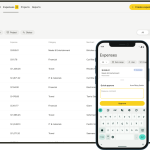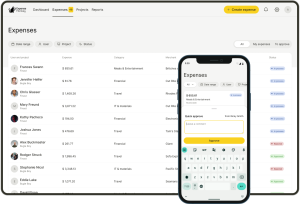If you find yourself facing unexpected expenses, need money for a major event or want to consolidate your debt, personal loans can be an ideal way of getting the cash that you need. However, before you even think about applying for one, it’s crucial that you take the time to understand how they work and whether they are right for you.
Firstly, review your credit report and fix any errors. Lenders will heavily rely on this document when determining both your creditworthiness and interest rate. Next up, make sure to shop around – comparing rates and terms offered by different lenders is essential.
Your Needs Matter
Though personal loans can be incredibly powerful financial tools when used correctly – helping clear high-interest debt or fund large home improvement projects – they also come with their own risks. Consider all your options carefully before proceeding; weigh factors like income and credit score to make an informed decision.
Credit scores and debt-to-income ratios (DTI) are key components considered by lenders when assessing your eligibility for a loan or credit card application, so it’s important to examine them first. By doing this regularly, you’ll also get an idea of how each application affects your score (keep in mind more applications may equal less creditworthiness!).
Moreover, if a lender sees that you have stable employment with sufficient income to pay back their loan, then great! Still, other elements such as repayment plans and amount of money owed will be considered too.
Comparison Shop
When it comes to quickly tackling emergency expenses or making large purchases at favorable interest rates instead of using credit cards which have higher ones – personal loans are efficient and flexible solutions. But don’t dive in head-first without researching how they work!
For example, look into choosing a lender who offers personalized rate quotes based on your unique credit profile – seeing multiple hard inquiries on your report could lower it further. Additionally check if the lender offers benefits like autopay discounts, unemployment protection or access to financial coaching or credentialed planners because these can help you save some money overall.
Though others may choose to use these loans to splurge on credit card balances, home improvements or vacations, remember that doing so will increase your overall expenses. Make sure your budget is in check and be diligent with your payments to save money in the long run by paying it off faster than scheduled.
Know What You’re Getting Into
Although many lenders offer personal loans at competitive rates and affordable monthly payments, consumers should never apply without checking their options. Before signing any paperwork, have a clear understanding regarding the loan terms and repayment timeline as well as any existing fees. Finally, analyze whether a personal loan is really the best route for you – consider paying off credit cards or financing big purchases through home-equity financing instead.
Personal loans can be particularly helpful for people who are trying to rid themselves of high-interest debt or fund major home renovation projects. While most of these options require an excellent score in order for you to qualify, lower scores are still accepted – just keep working on improving them!
A personal loan can be a smart way to cover the cost of a big purchase or knock out high-interest debt. But if you’re not careful, interest costs can rack up in no time. Before you get new credit, use a personal loan repayment calculator and shop around for the best rate. Also consider lenders that offer automatic payments or mobile apps to help you stay on top of your loans.
Although personal loans will ding your score with hard credit inquiries, they can also boost it over time when used responsibly. Be sure to check your reports and scores regularly during the life of your loan so there are no surprises in the form of late fees or other issues; lots of lenders offer autopay discounts too, which can save money in interest charges.












More Stories
Beyond Greenwashing: How Sustainable and ESG-Linked Loans Work for You and Your Business
Financial Wellness Programs and Their Impact on Employee Loan Access
Financing Alternative Education Paths: Your Guide to Paying for Bootcamps, Certifications, and More